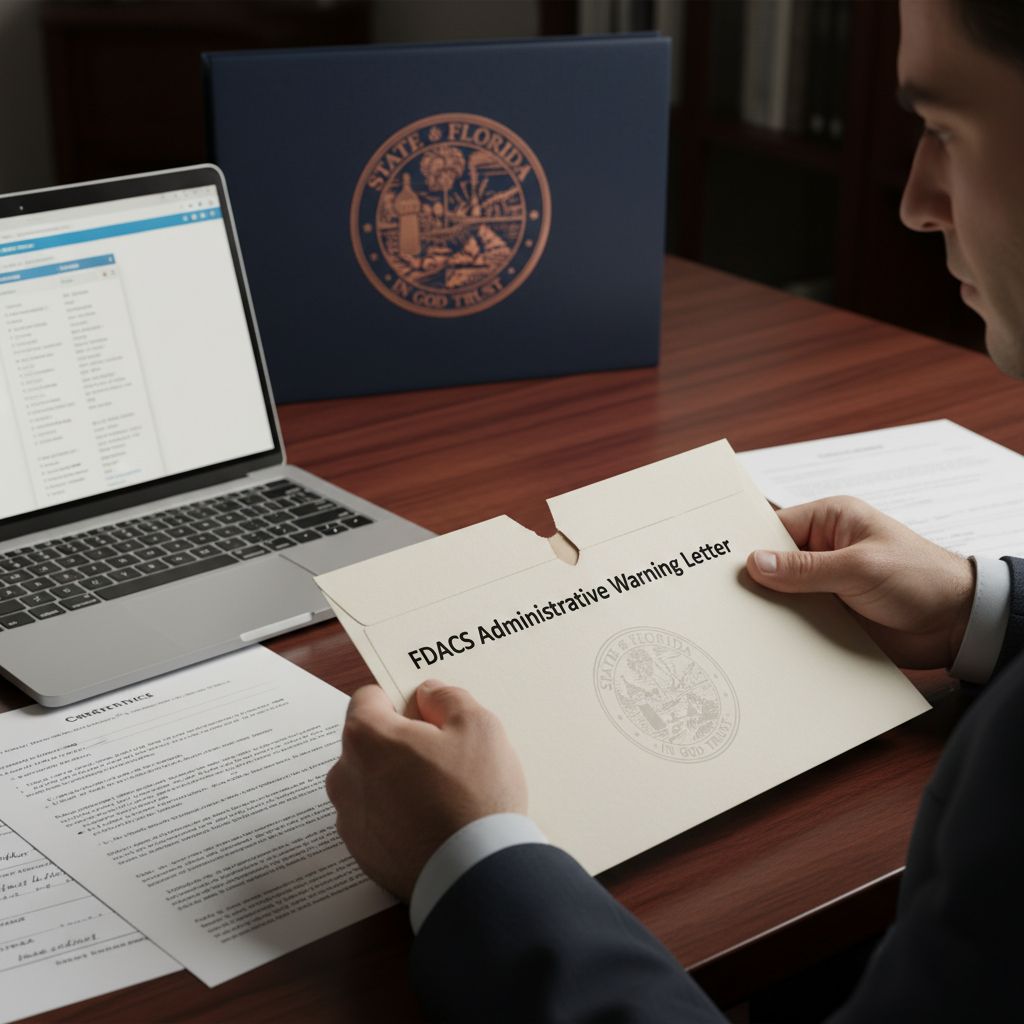
Read this guide to Florida contractor violations under F.S. 489.129(1)(d), (f), or (g)2. If you are a licensed construction contractor in Florida, receiving an Administrative Complaint from the Department of Business and Professional Regulation (DBPR) can be a profoundly stressful and potentially career-threatening experience. These complaints allege serious violations of Chapter 489, Florida Statutes, and carry the risk of license suspension, revocation, and substantial fines.
At Elevate Legal Services, PLLC, we understand the stakes. Our approach is to provide clear, professional, and solution-oriented guidance, ensuring you receive the trustworthy representation needed to navigate this complex legal process.
Call Elevate Legal Services, PLLCtoday on 561-770-3335 for a confidential consultation, or contact usto speak with an attorney about your case.
Below, we detail three critical areas of disciplinary action under F.S. 489.129(1) and explain why a swift, authoritative legal response is essential.
Defending Specific Violations Under F.S. 489.129(1)
 Florida Statute 489.129(1)lists the specific grounds for disciplinary action. Your defense must be precisely tailored to the accusation.
Florida Statute 489.129(1)lists the specific grounds for disciplinary action. Your defense must be precisely tailored to the accusation.
1. F.S. 489.129(1)(d): The Grave Charge of Project Abandonment
Receiving a DBPR complaint alleging abandonment of a construction project is one of the most serious challenges a contractor can face. This statute targets contractors who cease work without legal justification and without properly notifying the owner.
Understanding the Violation
- What Constitutes Abandonment?The law defines abandonment as failing to perform any work on the contract for 90 consecutive days, unless the contractor is relieved of responsibility by the contract terms or is prevented from performing by outside factors (such as a valid building permit issue or owner-caused delays).
- The Contractor’s Perspective:It is critical to note that the DBPR investigation often fails to account for the contractor’s true justification. Did the owner fail to make required payments? Was the delay caused by a change order request or a materials shortage outside of your control?
- Our Solution-Oriented Approach:We focus on establishing the legitimate, defensible reasons for the cessation of work, gathering crucial documentation such as written communications, payment histories, and records of change orders to dismantle the allegation of abandonment.
2. F.S. 489.129(1)(f): Unauthorized Departure from Plans or Building Codes
This section addresses the standard of quality and adherence to legal requirements in construction. A violation under F.S. 489.129(1)(f) is alleged when a contractor:
- Willfully departs from the plans or specifications of the contract without the owner’s consent.
- Violates approved plans or specifications when a permit is required.
- Violates any provision of the Florida Building Code.
Maintaining Professional Standards
- Departure from Plans:The keyword here is “willful.” Did you modify without informing the client or obtaining necessary permits? Or was the change a minor, necessary deviation that did not impact the integrity or safety of the project?
- Building Code Violations:Being cited for a code violation can damage your reputation and lead to costly rework. However, an administrative complaint requires proof that the contractor was directly responsible for the willful failure to meet the code standard.
- Our Client-Centered Defense:We work with technical experts, engineers, and inspectors to determine if the alleged issues truly constitute a willful departure or if they fall into the realm of a minor defect, code interpretation dispute, or an issue that has already been corrected. Our goal is to protect your license by demonstrating a pattern of good faith and professional compliance.
3. F.S. 489.129(1)(g)2: Allegations of Negligence or Incompetence
This is often a broad and subjective section used by the DBPR to address situations where a licensee’s work quality or judgment falls below the expected professional standard. The statute states that a complaint may arise if a contractor is found guilty of:
- Negligence or Incompetencein the practice of contracting.
Defining the Standard of Care
- Understanding Negligence:Negligence in the legal sense requires a failure to exercise the due care that a prudent and reasonable contractor would exercise under similar circumstances. Not every error or flaw in construction meets this high threshold.
- Incompetence vs. Mistake:The DBPR must prove systemic incompetence, not just a one-time oversight. We approach these cases by presenting evidence of your training, experience, project history, and standard operating procedures to demonstrate that you operate with the required level of professional skill.
- Reassuring Representation:Facing allegations that question your professional competence is disheartening. Our legal team provides the authoritative defense necessary to restore credibility, focusing on your long-standing reputation and the context of the specific complaint.
The Immediate Legal Threat of a DBPR Complaint
A DBPR Administrative Complaintis far more than a warning; it is the official initiation of a formal legal proceeding. It carries the severe risk of license suspension, revocation, and significant financial fines.
The Critical Steps You Must Take Now
Handling a complaint swiftly and efficiently can be the difference between a minor penalty and the loss of your business.
Do not delay. Follow this essential, time-sensitive process:
- Secure Silence:Do not communicate with the DBPR investigator or the alleged complainant without legal counsel present. Any statement you make willbe used against you.
- Identify the Charge:Immediately review the document and pinpoint the specific Florida Statute violation cited (e.g., F.S. 489.129(1)(d), (f), or (g)2).
- Organize Everything:Compile all related documentation: contracts, emails, payment records, change orders, inspection reports, and permitting data.
- Contact Counsel:Secure experienced legal representation specializing in Florida administrative law and contractor license defense.
Navigating the Election of Rights Form
The complaint packet includes an “Election of Rights“ form. This is your first major decision point.
Here’s what that means legally:
- Formal Hearing:You choose this if you genuinely dispute the underlying facts of the state’s case. This initiates a trial-like hearing before an Administrative Law Judge (ALJ).
- Informal Hearing:You choose this if you accept the core facts but dispute the legal conclusion or wish to argue for a lesser penalty. This is presented directly before the relevant Licensing Board.
- Waiver:Waiving your rights means admitting the charges and subjecting yourself to the Board’s discretion for sentencing. This is rarely, if ever, an advisable strategic path.
You cannot afford to get this wrong.The choice you make here dictates your entire defense strategy.
Why You Need Administrative Law Specialists
Administrative law is a unique field, distinct from civil or criminal courts. DBPR cases operate under Chapter 120of the Florida Statutes (the Administrative Procedure Act).
Here’s the difference:
- Focus on the License:The primary penalty is not jail or restitution; it is the revocation of your ability to earn a living.
- The Board is the Final Authority:The CILB, not the ALJ, issues the Final Order. Having counsel who understands the Board’s priorities and past rulings is essential for successful negotiation.
- Settlement is Key:Most cases resolve through a Settlement Stipulation. We negotiate the terms of this stipulation to minimize fines, avoid revocation, and reduce probationary periods, ensuring the least damaging outcome is public record.
Protecting Your Future and Reputation
The impact of a DBPR complaint extends far beyond the immediate fine. Disciplinary actions are public record, affecting your reputation, your ability to secure bonds, and your future work.
 Penalties and Mitigating Factors
Penalties and Mitigating Factors
Penalties under F.S. 489.129 can include:
- License Suspension or Revocation.
- Administrative Fines (up to $10,000 per violation).
- Probationary periods with mandatory supervision.
- Restitution requirements for the consumer.
Mitigating Factors are Your Defense Tool:We meticulously present evidence of mitigation, prompt remediation, full cooperation, completion of educational courses, lack of prior history, and evidence of a positive track record, to persuade the Board to impose the minimum possible sanction.
Your Trusted Defense Partner
When your license and livelihood are on the line, you need a law firm that is authoritative, professional, and dedicated to your success. Elevate Legal Services, PLLC, based in Boca Raton, is precisely that partner. We provide the client-centered, trustworthy representation you deserve.
The threat of a DBPR administrative complaint is severe, but your legal options are strong.
Do not face the state alone. Your defense starts now.
Contact Elevate Legal Services, PLLC, immediately. Call us at 561-770-3335for a confidential consultation or fill out our online contact form.
Frequently Asked Questions (FAQ) for Contractors
1. What is the typical maximum fine for an F.S. 489.129 violation?
The Construction Industry Licensing Board (CILB) can impose administrative fines up to $10,000 per count or violation. Repeat or severe offenses, especially those involving financial fraud or significant public safety concerns, can see fines quickly escalate.
2. Is a DBPR complaint a criminal matter?
Generally, no. A DBPR Administrative Complaint is a civil regulatory action. However, violations involving serious fraud, theft, or unlicensed contracting (under F.S. 489.127) can trigger parallel criminal investigations and charges. This is why immediate legal review is critical.
3. How long does a license suspension last?
License suspensions are typically set for a fixed period (e.g., 6 months to 2 years), followed by a probationary period. Full revocation is the permanent loss of your license. The length of the suspension is a major focus of settlement negotiations.
4. Can I still work while the DBPR investigation is ongoing?
Yes, generally you can continue to work throughout the investigation and even after an Administrative Complaint is filed, right up until the point a Final Order imposing a suspension or revocation is issued by the CILB.
5. What are the key elements the DBPR must prove for “Negligence” under F.S. 489.129(1)(n)?
To prove negligence, the DBPR must show that you failed to exercise the degree of care that a reasonably prudent contractor would have used under the same or similar circumstances. In cases involving severe penalties, they often attempt to prove Gross Negligence, which requires a showing of reckless disregard.
6. Will I have to appear in person at the Administrative Hearing?
If you elect a Formal Hearing, your attendance is necessary, as it is a trial-like proceeding. For an Informal Hearing, your attorney may present the arguments on your behalf. In all instances, our firm manages the preparation and legal arguments, minimizing your direct, stressful involvement.
7. What is the biggest mistake contractors make when facing a DBPR complaint?
The biggest mistake is attempting to handle the defense themselves. They often volunteer information, miss critical deadlines (such as the Election of Rights), or sign documents that waive their due-process rights, inadvertently making the DBPR’s case for them. Do not talk. Call your lawyer.
Contact Elevate Legal Services, PLLC, Today!
Don’t wait. Call us today at 561-770-3335for a confidential consultation or fill out our online contact form. Let us help you navigate this challenging moment, safeguard your business, and move forward with confidence.





